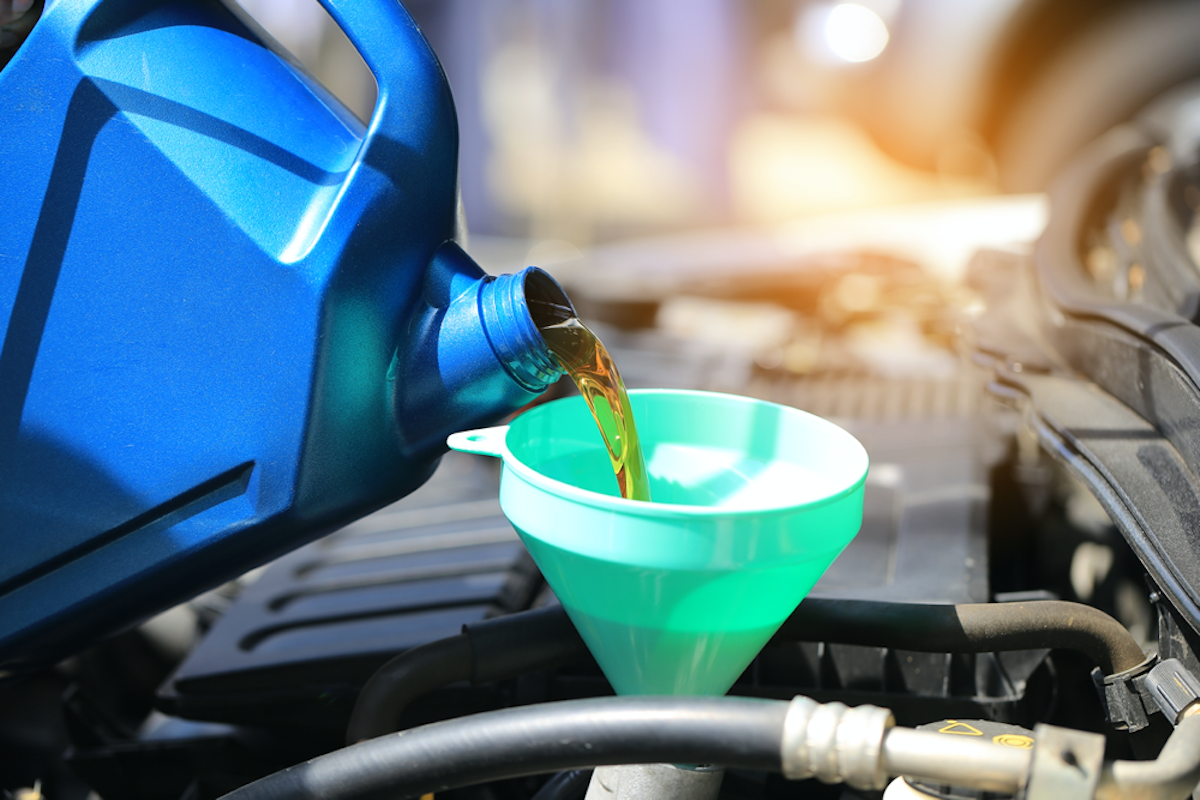Finding The Right Oil For You

When it comes to motor oil, there seems to be no shortage of conventional oils, synthetics and synthetic blends to choose from.
What, exactly, do the letters and numbers represent? Here’s the breakdown on what each is, And how can you find the right match for your engine?
According to Valvoline, oil codes can help you choose the right fluid for your vehicle. The “W” stands for winter; the number preceding the “W” refers to a cold weather viscosity.
The lower the number, the less viscous oil will be at low temperatures. A 5W- motor oil flows better at colder temperatures than 15W- oils in the same conditions.
The numbers after the “W” refers to the oil’s viscosity at hot temperatures. The higher the number, the thicker the oil at a specified temperature.
Check the vehicle owner’s manual for specific recommendations for your driving conditions. Or ask your service advisor for help choosing the right product.
Below, oil manufacturers offer some tips on oil maintenance and benefits of a winer-formulated oil.
- Check your owner’s manual for the proper type of oil. It will say the recommended grade and offer advice on how frequently to have it changed.
- Choose an oil that’s designed for your engine. Some oils are specially formulated for high-performance engines, while others are best for engines that experience a lot of city driving.
- Older vehicles might benefit from using high-mileage oil. Oil designed for a high-mileage engine has more viscosity, thickerness, than conventional. The thicker fluid compensates for wear and tear on the engine. For example, older vehicles have more space between bearings.
- Routine maintenance. Regular oil changes can help wring every last mile out of your engine. It’s an inexpensive way to keep your vehicle running in top performance.
- Synthetic oil comes from conventional oil. The base of synthetic oil is crude oil, which is distilled and refined before specifically engineered chemical compounds are added.
- Synthetic oil evaporates slower than conventional oil, and offers resistance to thermal breakdown, the formation of engine sludge and oxidation--when oxygen contaminates the oil, which can degrade its quality and even cause it to go rancid.